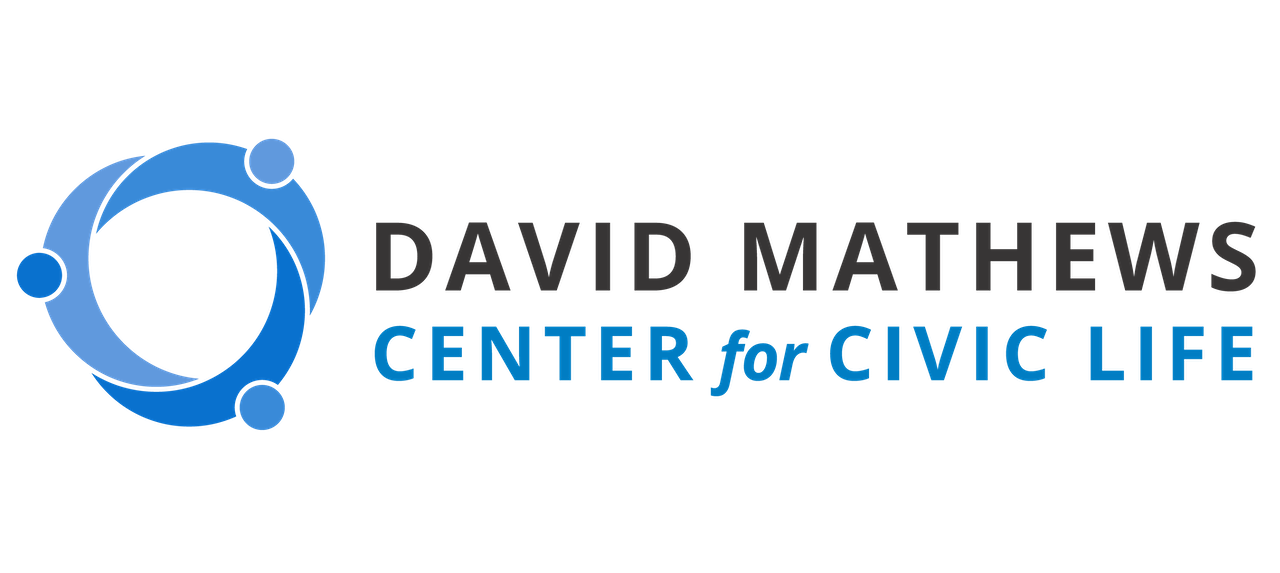Land of Plenty: Discussing Food Insecurity in Montevallo
On Thursday, April 27th, the DMC hosted Keys to the City partners, Hollie Cost and Herman Lehman, to facilitate a deliberative forum about food insecurity in Montevallo and the surrounding areas, utilizing the Land of Plenty issue guide from the National Issues Forums Institute. This forum was part of the National Week of Conversation movement.
Faith-based leaders and other members of Montevallo and the surrounding communities gathered in the Rotunda at the American Village to initiate a conversation about the impact of food insecurity in their neighborhoods, and what actions can be taken, individually and collectively, to alleviate this need. One participant, belonging to a local church, described how beneficial the food pantry they offer is, but it can be difficult to keep stocked; sometimes it only takes an hour for the pantry to be emptied, and most churches do not have a means of refrigeration, limiting the groceries they can provide. Through our discussion, the participants realized that many of the churches housed food pantries and could depend on each other, creating a network, as well as a plan to source out-of-use refrigeration units from larger companies.
Additionally, many other resources were shared for use in their communities, such as the Grow More, Give More program by the Alabama Cooperative Extension System, which will utilize pop-up gardens to provide fresh produce in food deserts and allow farmers to donate their extra produce instead of tossing it. The Extension System has also created Live Well Alabama, a hub for shopping and budgeting programs and healthy recipes, and the Food Bank of Central Alabama has been working in conjunction with Dollar Generals around the state, who have been occupying empty grocery stores, to disperse unused food and a provide a wider variety of groceries to local residents.
These discussions showed that there is an adamant need for food security and distribution in the area, but it also posed the question of why everyone was gathered together: What is our responsibility to make sure no one is hungry? Essentially, everyone agreed that the right to eat is a right to life; it should not be something you constantly have to work for. The need for food also affects other parts of people’s lives, such as their work, housing, health, and childcare, things that cannot be afforded because of the price of groceries. As one participant mentioned:
“If you’re hungry, you’re not thinking of anything else.”
While there are a variety of action steps taking place in each community, many agreed that the root of the problem may not be addressed until policymakers start paying attention to the issue. Recently, SNAP benefits have decreased around the state, with one member stating that her elderly neighbor only receives $35 for the entire month to spend on groceries, which is simply not possible. Others stated that there has been a movement in other states and areas to remove taxes on groceries, or possibly provide tax incentives for grocery stores to operate in rural and inner-city areas. As mentioned earlier, some explained that addressing food insecurity alone may not be enough and other factors need to be addressed, such as supplementing childcare or utilities or raising the minimum wage so people can afford their own food, rather than relying on government food programs.
Although there were some heavy topics discussed, each participant left energized and with new connections to generate action, and the Mathews Center cannot wait to see what steps this group takes to create a more beneficial community for all. We are so thankful for our partnership with Keys to the City and the opportunity to host and witness such a fruitful conversation.




